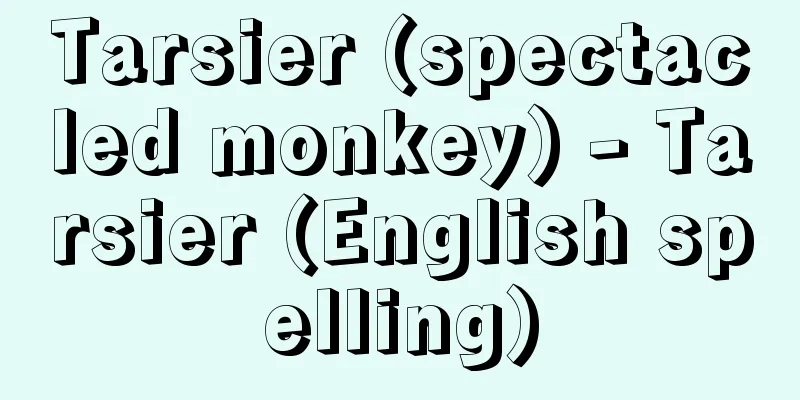Exchange - Irekaeryougae

|
〘 noun 〙 In the Edo period, the term referred to the practice of lending money to merchants who were speculating by using the deposit receipts of goods such as rice, sugar, and dried sardines as collateral. It also referred to the money exchanger. Exchange. [Essay: Yagi no Monogatari (mid-19th century)] Source: The Selected Edition of the Japanese Language Dictionary About the Selected Edition of the Japanese Language Dictionary Information |
|
〘名〙 江戸時代、商品あるいは米切手、砂糖切手、干鰯(ほしか)切手など商品の蔵預証券を担保に取って、思惑買(おもわくがい)する商人に対して資金を貸すこと。また、その両替屋。入替。〔随筆・八木の話(19C中か)〕
出典 精選版 日本国語大辞典精選版 日本国語大辞典について 情報 |
>>: Shunting signal - Irekaeshin gouki
Recommend
Salicornia fruticosa (English name) Salicornia fruticosa
In Madagascar, rubber was once extracted from Eup...
Official money - Goyoukin
〘Noun〙① During the Edo period, the shogunate and v...
Tamashima
A district of Kurashiki City in the southwest of ...
One-eyed Jizo - Katamejizo
...The belief that Jizo guides all living beings ...
Giuseppe Bottai
1895‐1959 Italian fascist politician. After playin...
Ananta - Ahh what?
...The constitutional revolution (1932) occurred ...
qualitative analysis
…Chemical analysis is the process of clarifying w...
Kawabata Bosha
Haiku poet. His real name was Nobukazu. He was bo...
Kiryu Kunitsuna - Kiryu Kunitsuna
...The city center is located on a terrace on the...
Zomen - Zomen
A Bugaku mask. A rectangular piece of thick paper ...
Kaibara Ekiken
A Confucian scholar, naturalist, and educator of ...
Pecan - Pecan (English spelling)
A deciduous tall tree of the genus Caria in the J...
Anjunan
...Korean Silla scholar and historian. His pen na...
Pearl, R.
...Then, Belgian mathematician PF Verhulst (1804-...
Sucrose (cane sugar) - shoto
Saccharose is also called sucrose. It is a disacch...









